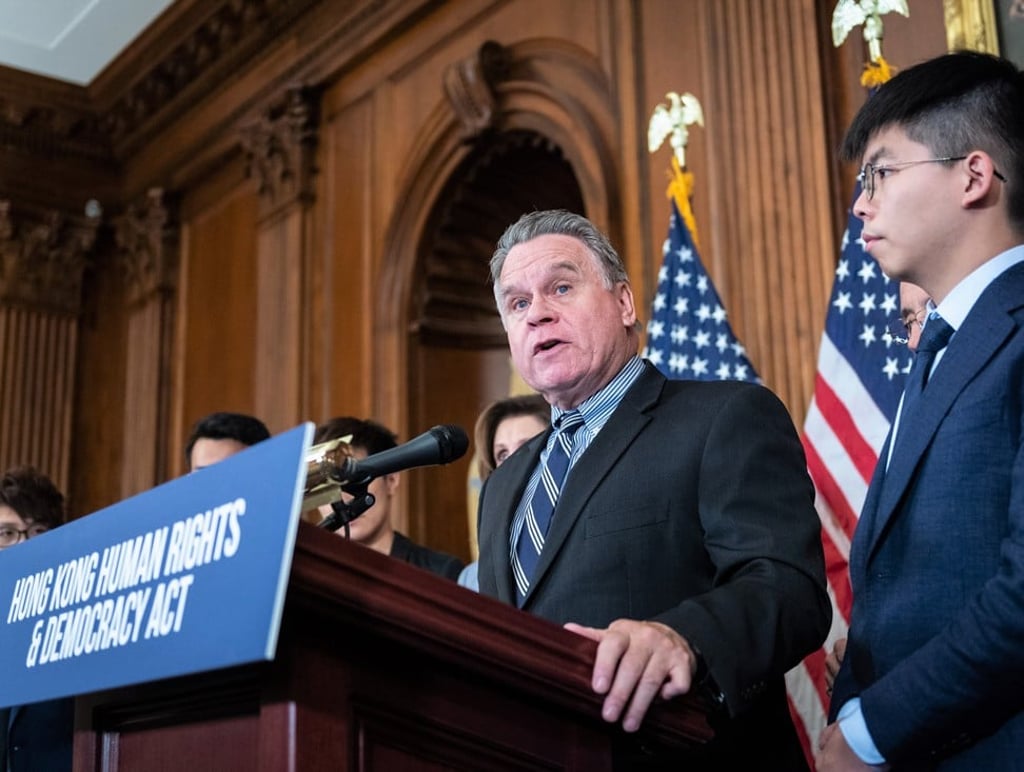US bill on Hong Kong democracy, which has angered China, gets approval in House and Senate committees
- The Hong Kong Human Rights and Democracy Act clears House and Senate committees, with floor votes to come
- Legislation mandates sanctions against Chinese officials deemed responsible for ‘undermining basic freedoms in Hong Kong’

A US bill written to support democratic freedoms in Hong Kong by increasing pressure on Chinese authorities moved closer to becoming law on Wednesday after receiving approval by two congressional committees.
The Hong Kong Human Rights and Democracy Act of 2019, which Beijing has branded as interference in its domestic affairs, moved through the Senate Foreign Relations Committee and the House Foreign Affairs Committee, setting the stage for votes in both chambers in the coming weeks.
The bill passed the House committee in a unanimous vote, said Jeff Sagnip, policy director for Representative Chris Smith, a New Jersey Republican who sponsored the legislation in that chamber.
An identical version of the bill, sponsored by Senator Marco Rubio, Republican of Florida, was approved by the Senate committee shortly afterwards.

“Getting out of the committee is the big step,” said Sagnip, who added that “a floor vote [in the full House of Representatives] will take place sometime in October”, most likely shortly after Columbus Day, a US federal holiday, on October 14.